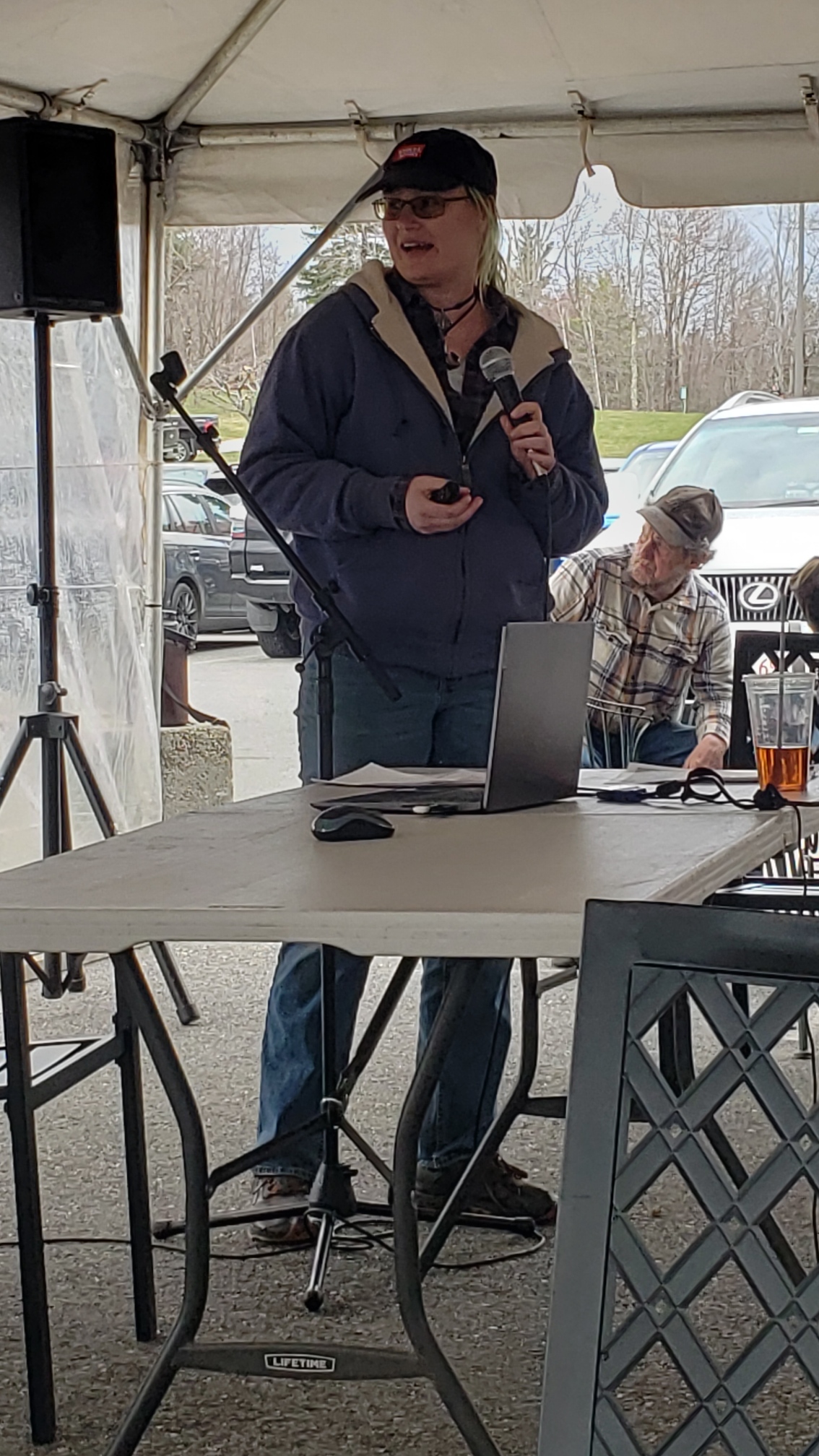"I introduced the audience to our "Adaptive Silvilculture for Climate Change" project, also known as ASCC. The ASCC network is a research network of forest sites in the US and Canada (and maybe Mexico soon) where foresters are trying out ways to make their forests more resilient to the things that climate change is doing. You can check out our project, the "Southern New England Exurban Oak". It's listed under "affiliate" sites because it's a little different than the normal projects. Usually they work with 400 acre experimental areas, and while that wasn't realistic for New England we still felt it was really important to do this project here, so we followed the same research protocol but used sites that were a little smaller and spread out. Every trial involves local experts, local stakeholders, and local foresters and together they make a management plan that addresses climate vulnerabilities on the site while also meeting forest management objectives for that site. In southern New England we have a lot more storms to deal with, generally a lot more water, but also drought in the summer, and we have some new pests and new combinations of old pests. The sites we chose had suffered a lot of canopy mortality from a combination of drought and spongy moth infestation in 2016-2018, and they were in need of some management to help them recover. Objectives for our site were to keep viable timber growing on the site and to improve it for recreation including hunting on one of the sites. The main thing that we tried to do with our silvicultural prescriptions, which might seem kind of obvious, is to improve the health of the trees growing there now, and to increase the diversity of species and structures (structures meaning like age classes and spacing), because more diversity means more chances to resist or recover from disturbances. We aren't inventing any crazy new techniques, we're just doing what foresters already know how to do, but with the very explicit intention of improving the forests' capacity to handle the changes we are already experiencing and those we think are coming. We talked a little about the ways we will be monitoring how the sites respond to management, about some tree species that are predicted to do great (or less grea)t as the climate continues to shift, and how important it is to do this kind of proactive management to keep our forests healthy and productive."
For more information on the April 10 event, check out the newsletter under Resources.

Amanda Bunce presenting at our April 10 workshop.
Get in Touch
CT Professional Timber Producers Association, Inc.
1133 Litchfield Road
Norfolk, CT 06058
860 948-0432
[email protected]
Learn More
Send Us news
If you'd like to submit an event or a timber-related news item, please send us an email.
